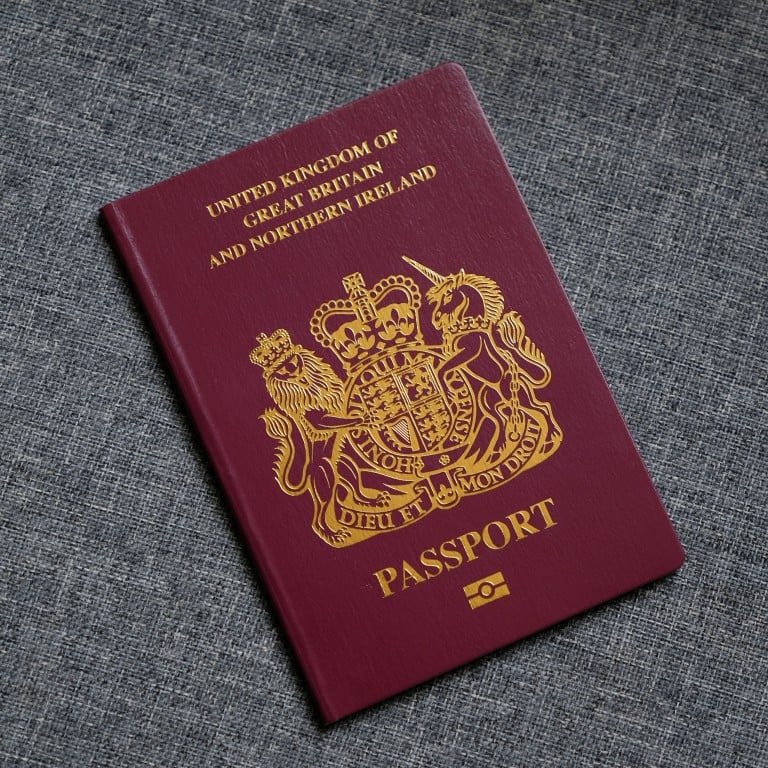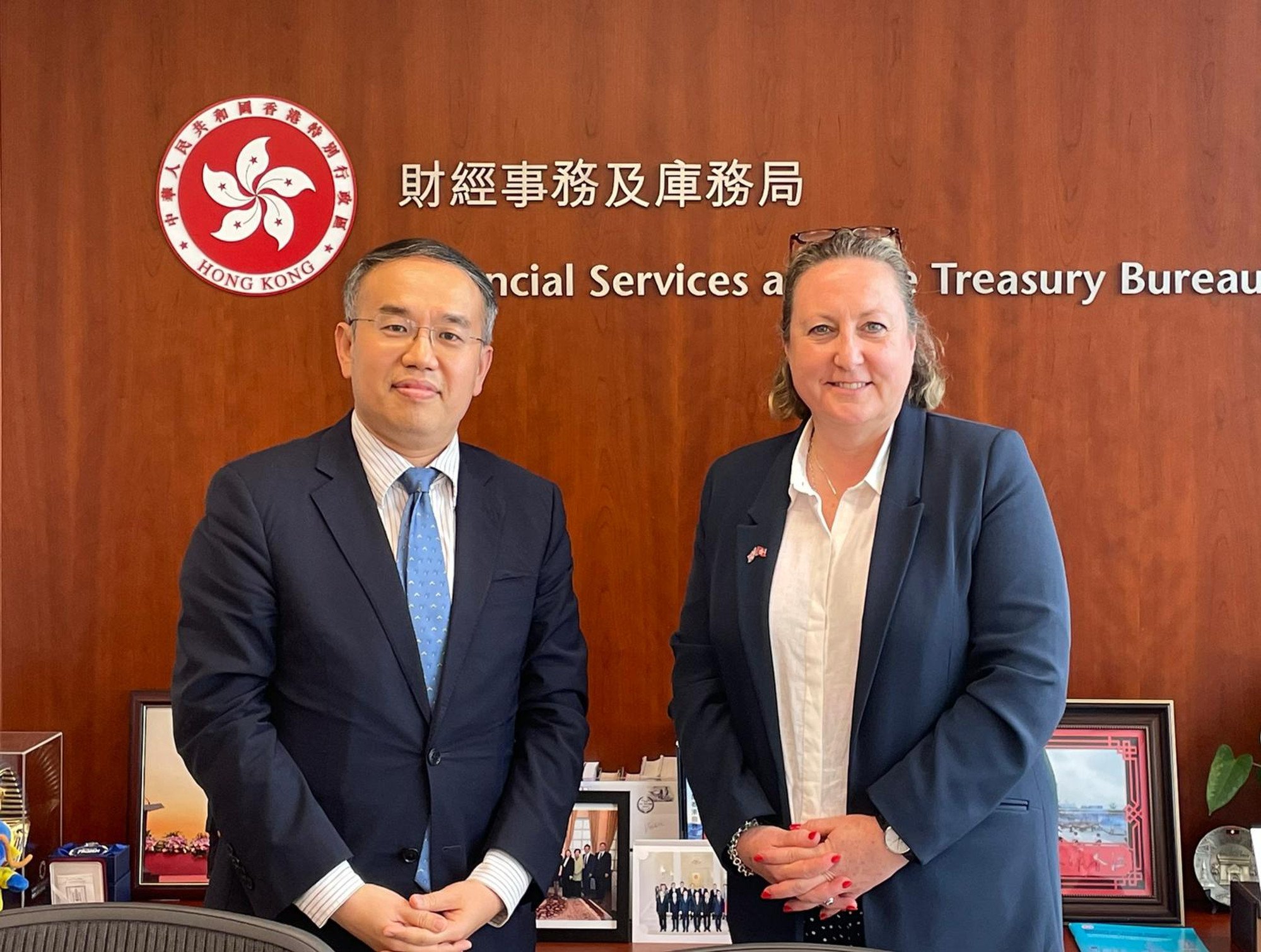
Hong Kong treasury chief tells UK minister BN(O) passports invalid as proof of identity in bid to sort out pensions confusion
- Treasury chief Christopher Hui seeks to clear up confusion over whether residents on UK citizenship pathway can withdraw pensions at meeting with visiting British minister
- Hui and Anne-Marie Trevelyan, the UK minister for the Indo-Pacific, also discuss city’s national security laws and opportunities for cooperation in business and finance
Secretary for Financial Services and the Treasury Christopher Hui Ching-yu also touted the recent domestic national security law as “conducive” to creating a prosperous business environment when he met Anne-Marie Trevelyan, the United Kingdom’s minister for the Indo-Pacific, on Wednesday.
The pair also “discussed opportunities for cooperation between Hong Kong and the UK in the areas of finance and businesses”, his bureau wrote in a social media post.
“Secretary Hui looks forward to deepening cooperation between Hong Kong and British enterprises and investors in these areas, opening up greater opportunities for both markets,” it added.
The treasury chief was the first local official to meet Trevelyan during a tour that began last Friday and covers locations such as Beijing, Tianjin and Hong Kong.
“Secretary Hui stressed that the BN(O) passport is not recognised as any form of proof of identity in Hong Kong,” the social media post read.
“Therefore, MPF scheme members cannot rely on the BN(O) passport or its associated visas as evidence in support of an application for early withdrawal of MPF on the grounds of permanent departure.”

Mainland Chinese and Hong Kong authorities in early 2021 declared they no longer recognised such passports as valid travel documents or proof of identity.
The Mandatory Provident Fund Schemes Authority also said pension members could not use the documents or associated visas as evidence to apply for early withdrawal.
The changes have reportedly prompted some residents to fabricate evidence of employment and residence on the mainland, with Hong Kong authorities later arresting some insurance agents in connection with the case.
“The law also legally protects human rights and freedoms that are enjoyed and applied to [Hong Kong] under the Basic Law and international covenants, allowing Hong Kong to attract more businesses and investments in a safer and more stable environment,” his bureau said.
Visiting UK minister to press Hong Kong authorities over ‘erosion’ of rights
He also used the meeting to share the latest details on Hong Kong’s economic situation and recent financial market developments, with the pair discussing opportunities for cooperation between the city and the UK in terms of finance and business.
“Secretary Hui looks forward to deepening cooperation between Hong Kong and British enterprises and investors in these areas, opening up greater opportunities for both markets,” the social media post read.
UK Foreign, Commonwealth and Development Office also issued a statement after the meeting, saying Trevelyan had stressed the country’s historic ties to the city and its “support for rights and freedoms set out in the Sino-British Joint Declaration”.
Beijing accuses UK of ‘old tricks’ over report slamming Hong Kong security laws
She also shared concerns about the country’s Hong Kong community, touching on topics such as city police’s decision to impose bounties on fugitives.
Trevelyan is the first British official to visit the city since authorities enacted the domestic national security law, as required by Article 23 of the Basic Law, on March 23.
Her office said she earlier met Deng Li, China’s vice-minister of foreign affairs, to discuss opportunities for greater cooperation between the two countries in areas such as artificial intelligence safety, trade and development, and climate change.
She also used the trip to call for China to lift sanctions against several UK politicians and other citizens.

